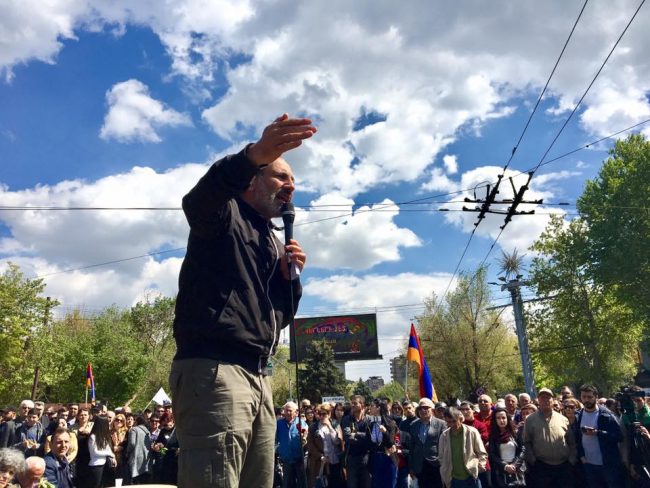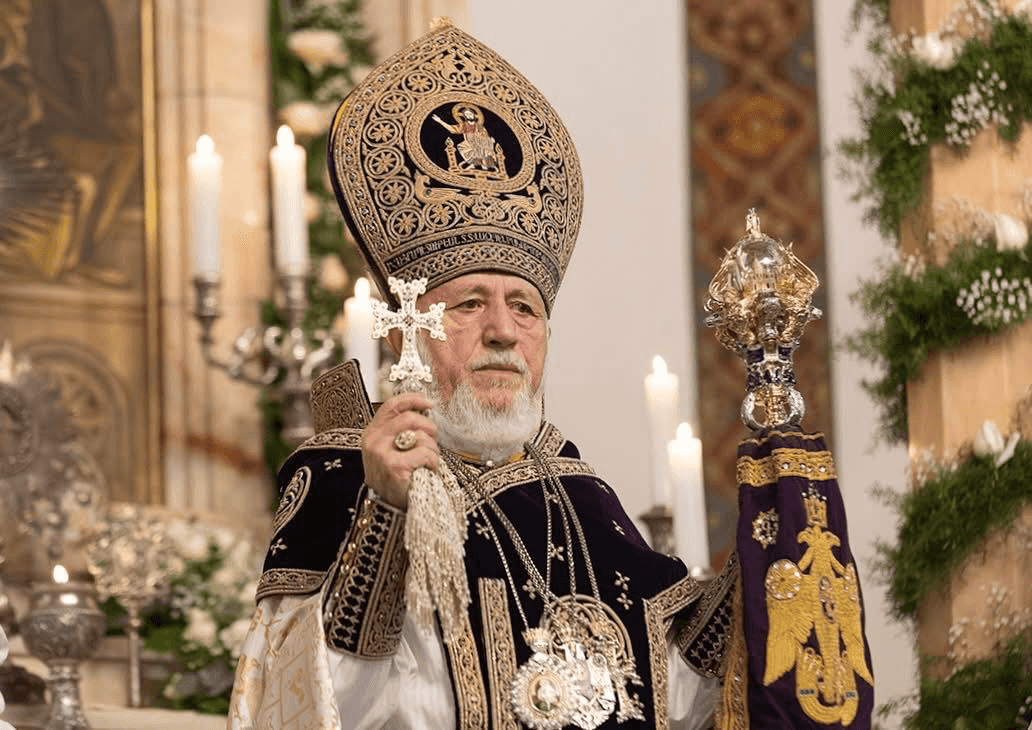

 Mass protests erupted on Friday following ex-president Serzh Sargsyan’s announcement that he would seek the position of Prime Minister, now the most powerful post in the country.
Mass protests erupted on Friday following ex-president Serzh Sargsyan’s announcement that he would seek the position of Prime Minister, now the most powerful post in the country.
The protests were announced by the opposition Yelk (way out) coalition on 12 April, a day after Serzh Sargsyan’s announcement, while lighting coloured smoke flares on the assembly floor of the Armenian parliament.
On 13 April, several dozen protesters, led by Nikol Pashinyan, leader of the Civil Contract party, a part of the Yelk coalition, forced their way into the main building of Yerevan State University in an unsuccessful attempt to confront rector Aram Simonyan. Later that day, several thousand protesters gathered on Yerevan’s central Freedom and France Squares.
Despite the protests, Serzh Sargsyan was nominated for PM by the ruling Republican Party on Saturday. The Republican Party’s decision-making council unexpectedly met in Tsaghkadzor, a resort town 60 km northeast of the capital, to make the decision.
On the same day, protesters led by Pashinyan seized the building of Armenia’s Public Radio for around an hour. RFE/RL’s Armenian service, Radio Azatutyun, quoted Pashinyan as attributing the move to the state media’s failure to properly cover the protests, calling this and other broadcasters ‘mouthpieces of government propaganda’.
The Prosecutor’s Office has asked police to investigate whether a crime was committed when protesters entered the university and radio station.
As of Monday, several streets in central Yerevan remain blocked by hundreds of protesters, with Pashinyan, calling for civil disobedience including paralysing traffic, striking, and boycotting classes in universities.
On the morning of 16 April, Armenian police released a statement warning that Pashinyan’s actions could ‘cause crimes against the life, health, and property of citizens’. The statement also stressed that the right to peaceful assembly ‘wasn’t absolute’ if accompanied by gross violations of public order.
Later that day, protesters clashed with riot police on Baghramyan Avenue, EVN Report reported.
Move towards an ‘authoritarian state’
In a comment to OC Media, Stepan Grigoryan, head of the Analytical Centre for Globalisation and Regional Cooperation, an Armenian think-tank, suggested the number of protesters has already reached the tens of thousands and that the ‘authorities will use force and all their resources to stop the protesters’.
‘Sargsyan aims to transform the country into an authoritarian state, where there will be a lack of freedoms, oligarchs, corruption, and human rights violations. It is the third term that Sargsyan wants to stay in power. The Constitution of Armenia was changed, transforming it from presidential to a parliamentary state. But this was done in order for Sargsyan to stay in power, i.e. become Prime Minister’, Grigoryan told OC Media.
‘The aim of the ruling elites is to preserve their corrupt and undemocratic regime’, Grigoryan said, adding that ‘Sargsyan’s appointment will bring dictatorship to Armenia’.
Constitutional reform
Serzh Sargsyan stepped down as President on 9 April as part of ongoing constitutional reforms to change the government from a semi-presidential to a parliamentary system.
Having previously played down suggestions he would run again for political office, Sargsyan announced on 11 April that he would seek the position of Prime Minister, now the most powerful post in the country.
Several protests loosely organised around the slogan ‘No to Serzh’, have been held since March. Protesters have been gathering in front of the ruling Republican Party’s headquarters since 9 April, when acting Prime Minister Karen Karapetyan announced that Serzh Sargsyan would replace him. A new prime minister is expected to be sworn in on 17 April.









